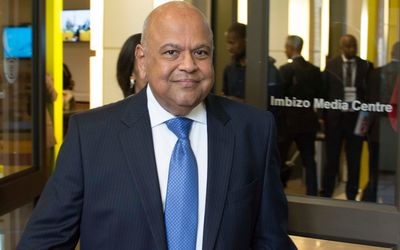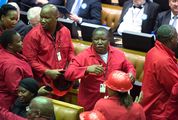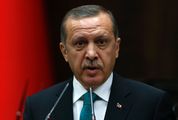IN HIS state of the nation address last week President Jacob Zuma outlined several measures that he said would help reduce wasteful expenditure. These, he obviously believes, should help the government avoid a credit rating downgrade.
They include smaller government delegations, the cancellation of the lavish ministerial budget vote dinners and a few other trivial items.
Mr Zuma then tried to drop a bombshell, which failed to detonate. He suggested the country might have to consider making do with one capital city, not two. This would mean either moving the executive to Cape Town, or moving Parliament to Pretoria or Johannesburg. This sounds impressive but in the context of the imminent fiscal crisis, it is as inconsequential as the other suggestions he made.
To begin with, Mr Zuma did not communicate a cost-saving target. If an objective like this cannot be measured, then it most likely will not succeed.
Perhaps it will come out in Finance Minister Pravin Gordhan’s budget at the end of the month, but that is doubtful. The budget has been completed and allocation letters sent out. A target exists but it is not being communicated. Therefore a critical moment that would help shape the rest of the government’s attitude towards cost cuts has been lost.
In essence, the problem with Mr Zuma’s speech was that it lacked conviction. Where he needed to place the force of his executive authority, he failed to do so. He could, for instance, have insisted on personally ensuring that all members of Cabinet and provincial premiers account to him for cost reduction at regular intervals during the financial year. The vagueness of his message on this issue gives the impression that he is not serious about it.
The suggestion of one capital city will not yield any benefits in the short term, and even in the long term the net benefit may be negligible.
Apart from ministerial homes and other expenses arising out of the Pretoria-Cape Town commute, virtually all other expenses would remain. Not only would a new Parliament and related offices need to be built in Gauteng, MPs would need housing, which is already available in Cape Town. This would have to be built at considerable expense.
MPs would simply swap the commute from their home provinces to Cape Town with OR Tambo and Lanseria airports, so only Gauteng MPs would benefit. There is also the risk of destroying an economic ecosystem built around Parliament, including jobs.
People who work there would either have to be relocated to Gauteng at significant expense, or be retrenched. This is unlikely to secure the support of unions and many other stakeholders.
Quite why Mr Zuma made this suggestion as part of the suite of measures to curtail expenditure growth in the short term is unclear. Its lack of substance is as poor as much of the speech itself.
That is a big concern given how government expenditure has ballooned in recent years.
Suggestions around the size of the Cabinet, the structure of the civil service in all spheres and the elimination of inept political appointments were missing. Inept incumbents are costly as they appoint cronies and champion programmes that yield nothing or very little in terms of service delivery.
Mr Zuma did not acknowledge the capture of the state at all levels, which results in the hijacking of government programmes from conception so as to siphon off contracts.
He could have articulated measures to ferociously deal with this but he didn’t, perhaps because he is deeply compromised in this respect himself.
It is not surprising, too, that none of the opposition parties has as yet offered a solid argument on cost-cutting and economic growth, the two pillars for avoiding a downgrade. They are as bad as the African National Congress on both scores.

Pravin Gordhan. Picture: TREVOR SAMSON
IN HIS state of the nation address last week President Jacob Zuma outlined several measures that he said would help reduce wasteful expenditure. These, he obviously believes, should help the government avoid a credit rating downgrade.
They include smaller government delegations, the cancellation of the lavish ministerial budget vote dinners and a few other trivial items.
Mr Zuma then tried to drop a bombshell, which failed to detonate. He suggested the country might have to consider making do with one capital city, not two. This would mean either moving the executive to Cape Town, or moving Parliament to Pretoria or Johannesburg. This sounds impressive but in the context of the imminent fiscal crisis, it is as inconsequential as the other suggestions he made.
To begin with, Mr Zuma did not communicate a cost-saving target. If an objective like this cannot be measured, then it most likely will not succeed.
Perhaps it will come out in Finance Minister Pravin Gordhan’s budget at the end of the month, but that is doubtful. The budget has been completed and allocation letters sent out. A target exists but it is not being communicated. Therefore a critical moment that would help shape the rest of the government’s attitude towards cost cuts has been lost.
In essence, the problem with Mr Zuma’s speech was that it lacked conviction. Where he needed to place the force of his executive authority, he failed to do so. He could, for instance, have insisted on personally ensuring that all members of Cabinet and provincial premiers account to him for cost reduction at regular intervals during the financial year. The vagueness of his message on this issue gives the impression that he is not serious about it.
The suggestion of one capital city will not yield any benefits in the short term, and even in the long term the net benefit may be negligible.
Apart from ministerial homes and other expenses arising out of the Pretoria-Cape Town commute, virtually all other expenses would remain. Not only would a new Parliament and related offices need to be built in Gauteng, MPs would need housing, which is already available in Cape Town. This would have to be built at considerable expense.
MPs would simply swap the commute from their home provinces to Cape Town with OR Tambo and Lanseria airports, so only Gauteng MPs would benefit. There is also the risk of destroying an economic ecosystem built around Parliament, including jobs.
People who work there would either have to be relocated to Gauteng at significant expense, or be retrenched. This is unlikely to secure the support of unions and many other stakeholders.
Quite why Mr Zuma made this suggestion as part of the suite of measures to curtail expenditure growth in the short term is unclear. Its lack of substance is as poor as much of the speech itself.
That is a big concern given how government expenditure has ballooned in recent years.
Suggestions around the size of the Cabinet, the structure of the civil service in all spheres and the elimination of inept political appointments were missing. Inept incumbents are costly as they appoint cronies and champion programmes that yield nothing or very little in terms of service delivery.
Mr Zuma did not acknowledge the capture of the state at all levels, which results in the hijacking of government programmes from conception so as to siphon off contracts.
He could have articulated measures to ferociously deal with this but he didn’t, perhaps because he is deeply compromised in this respect himself.
It is not surprising, too, that none of the opposition parties has as yet offered a solid argument on cost-cutting and economic growth, the two pillars for avoiding a downgrade. They are as bad as the African National Congress on both scores.





















Change: 1.12%
Change: 1.32%
Change: 1.88%
Change: 1.40%
Change: -0.41%
Data supplied by Profile Data
Change: 0.23%
Change: 0.57%
Change: 1.12%
Change: 0.00%
Change: 0.35%
Data supplied by Profile Data
Change: 0.80%
Change: 0.89%
Change: 0.74%
Change: 0.88%
Change: 0.58%
Data supplied by Profile Data
Change: -0.45%
Change: -1.32%
Change: -0.38%
Change: -0.85%
Change: 2.68%
Data supplied by Profile Data